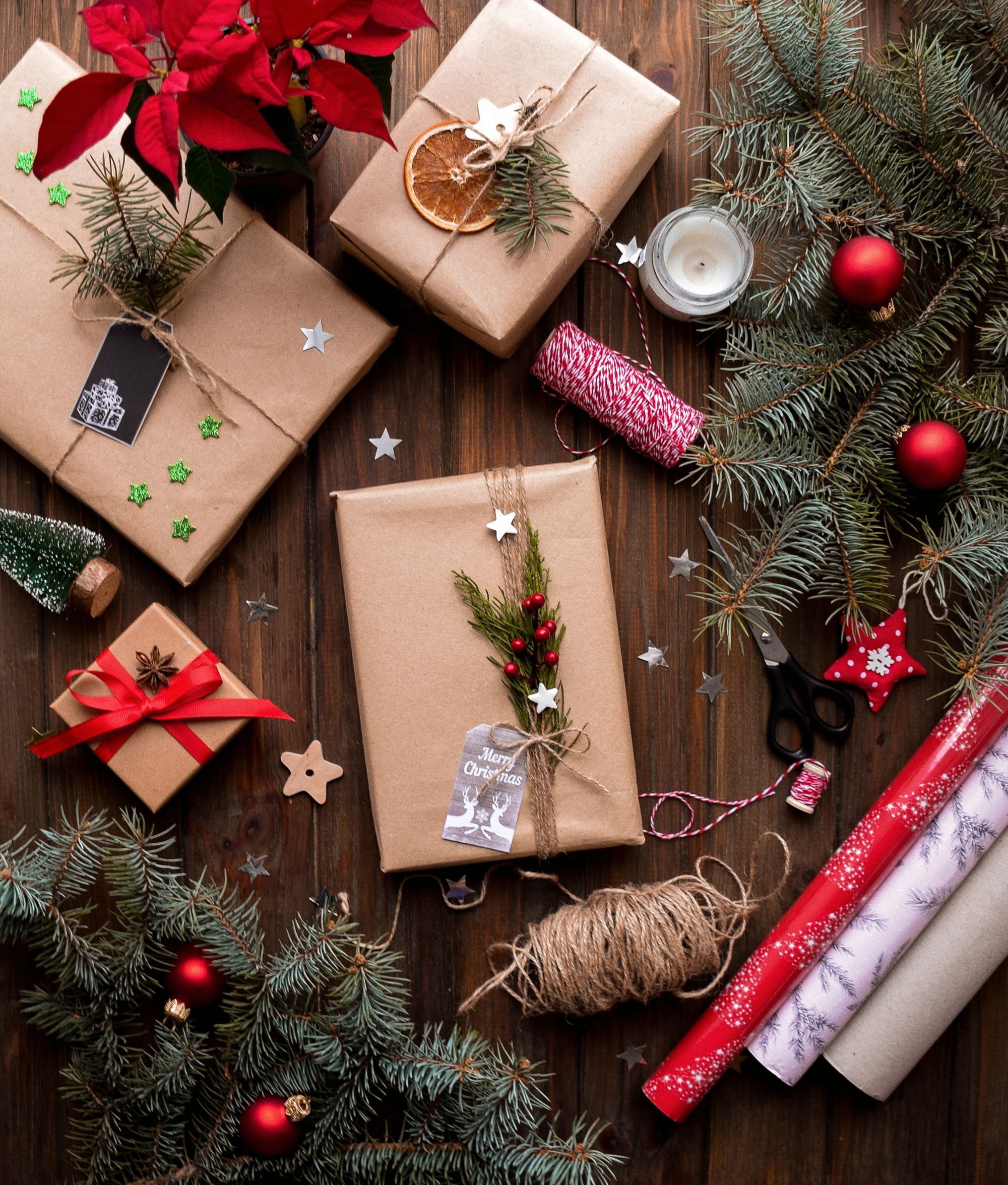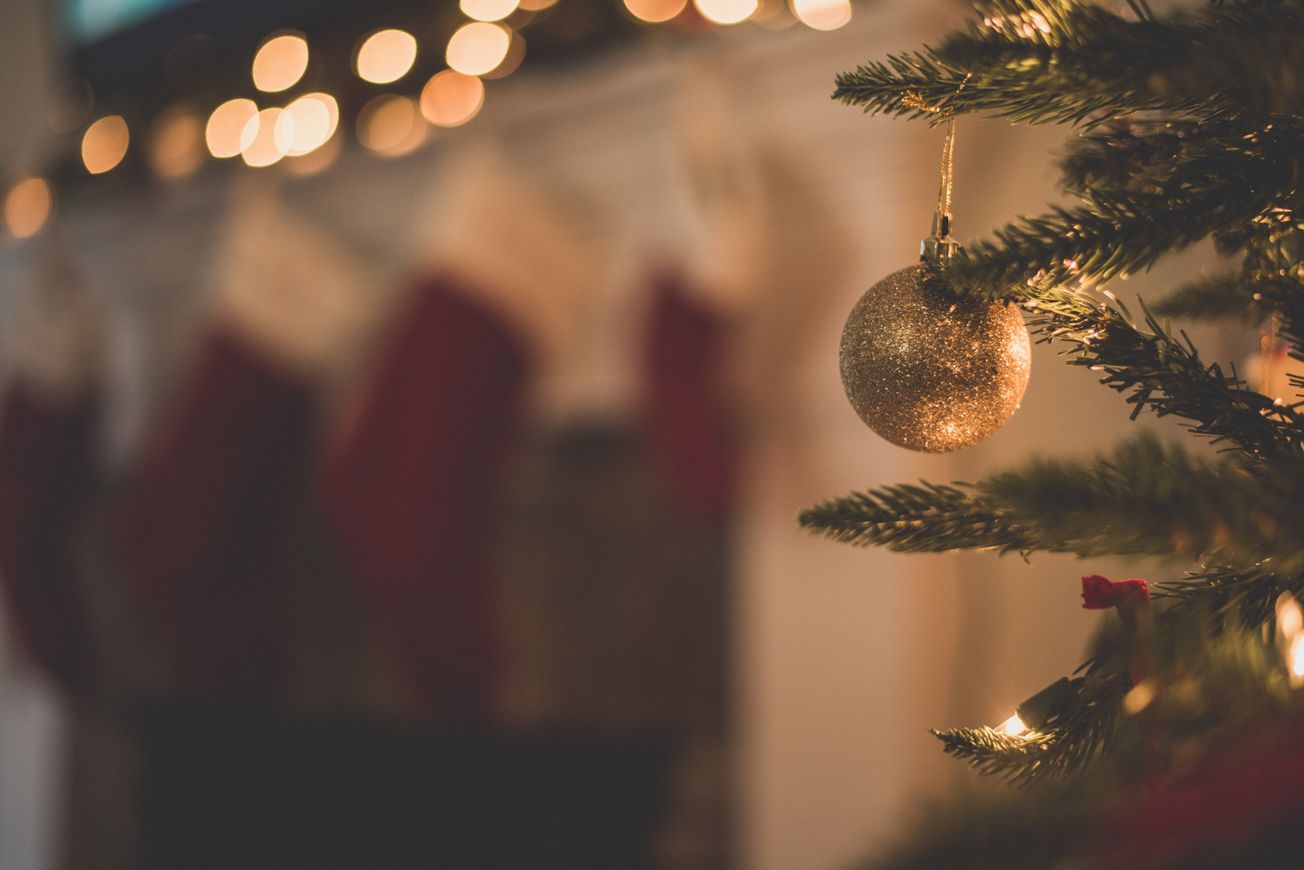By Za Byng, Second Year Law
‘On the first day of Christmas my true love said to me, temperatures have increased by 1.5 degrees’
As the festivities roll in, it is also time to consider making more sustainable choices. Christmas is a fun and laughter-filled time, but as the climate crisis becomes more urgent, it’s a great time of year to make the celebrations more environmentally-friendly.
Recent reports indicated that 227,000 miles of wrapping paper are wasted every year. Switching out single use paper for newspaper or reusable patterned fabrics is a cheap and easy choice to make Christmas greener. Recycled paper is another easy swap, and avoid buying non-recyclable wrapping paper with foil and glitter.
Look out for FSC-certified (Forest Stewardship Council certified) gift cards and wrapping paper. Saving ribbon from previous gifts is an easy way to recycle, or string is also an excellent replacement that can be used over and over again.
When it comes to buying gifts, it can seem easier to take the shortcut and make your last minute orders on Amazon. But why not have a look at some of the excellent charity shops and independent shops around Bristol, from Gloucester Road to Cotham Hill? Some of Epigram’s favourites include PRIOR, the non-profit eco lifestyle store, located near Cabot Circus, that showcases independent designers committed to conscious shopping. Or for a gift that gives back to the planet, drop by Mila Plants.
'The production of a plant-based Christmas dinner results in half the greenhouse gas emissions than a turkey one'
Shopping sustainably does not have to be a costly option. With a wide variety of clothes, homeware and trinkets, charity shops are the best place to secure a gift and hit that £5 secret Santa budget.
Christmas would not be the same without a festive feast. As food production is currently the biggest cause of tropical deforestation, avoiding food waste is an easy and essential step. It is worth planning ahead to estimate how much food will be eaten: BBC Good Food provides a handy at-a-glance portion planner to help you calculate your Christmas dinner quantities. If you find yourself with more ingredients to hand than necessary, consider donating any non-perishables to your local food bank. You could also get creative with leftovers (and swap that cling film for reusable Tupperware or wax covers!).

Buying local and seasonal produce makes a massive difference in reducing your carbon footprint, avoiding the extra air miles shipping food to the UK. Potatoes, sprouts, carrots, leeks and parsnips are all in season during winter, and opting for seasonal food options helps support British farms that support diverse wildlife and healthy, living soils.
Meanwhile, WWF indicates that approximately 100,000 tonnes of poultry are discarded in the UK each year, while a 2018 study revealed that the production of a plant-based Christmas dinner results in half the greenhouse gas emissions than a turkey one. Why not try a nut roast this Christmas instead?
🗽 8.5 million Statues of Liberty
— UN Biodiversity (@UNBiodiversity) December 21, 2022
🐳 10 million blue whales
🐄 2 billion cows
... are the equivalent of food wasted on farms each year.
Learn more about the importance of reducing food waste #ForNature and people via @wwf:https://t.co/ezDjzzjZCH
Finally, would Christmas be complete without a tree? There is nothing like a wholesome afternoon picking the perfect tree and decorating it with your family or friends, but should you be purchasing a plastic or a real tree? When buying a plastic tree, studies indicate that using it for 12 years pays off the environmental cost of using plastic to make it.
A Sit Down with the Faces of Bristol's Sustainable Fashion Community.
University of Bristol climate specialists attend COP27
If you’re looking to buy a real tree this December, look for a sustainable forest – the FSC certification is a good indicator. When disposing of it, consider getting it replanted if it is potted, or get it recycled and turned into wood chips. Sending a tree to landfill produces approximately 16kg of carbon dioxide, while disposing of it with a woodchipper or burning it on a bonfire only produces 3.5kg.
There are so many more sustainable alternatives, which require little effort but can have a huge impact on the urgent climate crisis; this Christmas, dream Green.
Featured image: Unsplash / Chad Madden
Will you be making any green changes this Christmas?









